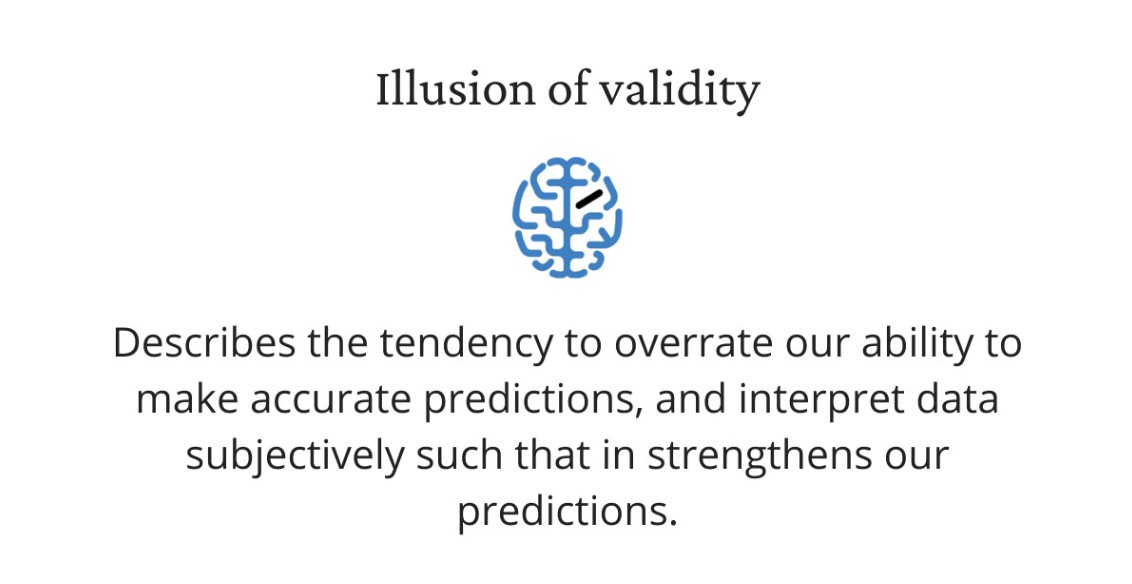The illusion of validity is a cognitive bias in which individuals believe that they have more information and a better understanding of a situation or topic than they actually do, leading to overconfidence in their judgments and predictions. People often overestimate the accuracy of their knowledge and assessments.
Explanations:
The illusion of validity is related to the overconfidence bias, where individuals tend to be overly confident in their judgments and abilities. People often rely on limited information and experience but still feel certain in their conclusions.
Examples:
Investment Predictions: An individual may confidently predict the performance of a stock based on limited information and experience, despite the unpredictable nature of financial markets.
Medical Diagnoses: Someone might believe they can accurately diagnose a medical condition based on internet research and self-assessment, even though medical expertise is required for accurate diagnoses.
Social or Political Predictions: People may confidently predict the outcome of elections, sports events, or social trends based on limited information or personal biases.
Solutions:
Humble Self-Assessment: Develop the habit of humility in your self-assessment, acknowledging the limits of your knowledge and experience.
Continuous Learning: Recognize that knowledge and expertise are ongoing processes, and seek to expand your understanding through learning and experience.
Feedback: Be open to feedback from experts or others with more knowledge in a particular domain, and use their insights to refine your judgments.
Critical Thinking: Cultivate critical thinking skills to evaluate the accuracy and validity of your own judgments and predictions.
Addressing the illusion of validity involves being aware of the limitations of one’s knowledge and experience and practicing humility in self-assessment. By recognizing the potential for overconfidence, individuals can make more accurate and informed judgments.
